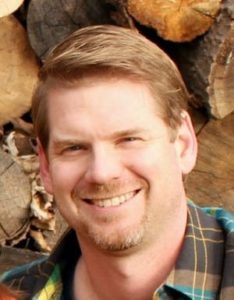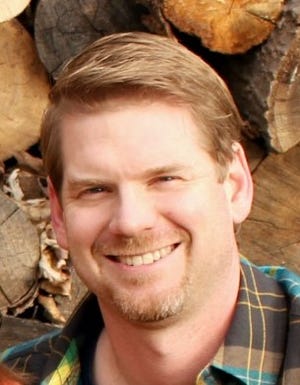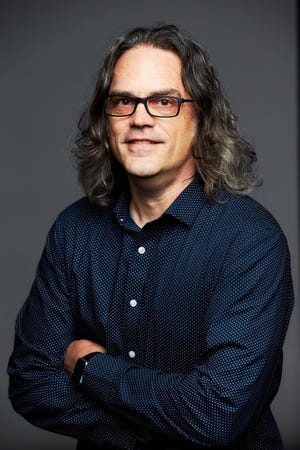by Dennis Dalman
A wide- ranging knowledge combined with community involvement are just two qualities listed as qualifications by candidate Matthew Moehrle, a candidate for the Sartell-St. Stephen school board.
Another plus is that Moehrle and his wife have two young children in the school system.
Moehrle is one of four candidates vying for three open seats on the school board in the Nov. 3 election. Those seats were occupied by Lesa Kramer and Pam Raden, who both chose not to file for re-election. The other position is served by incumbent Jason Nies, who did file for re-election. The other two candidates are Taryn Gentile and Patricia Meling.
The Sartell Newsleader asked the candidates school-related questions. The following are Moehrle’s responses:
Background
Moehrle described himself as a full-time stay-at-home dad who is also a part-time trial and appeal lawyer with the Rajkowski Hansmeier law firm in St. Cloud. He was a full-time lawyer with that firm from 2005-2017. He has successfully argued cases at all levels of Minnesota’s state court system, including at the Minnesota Supreme Court, and he is licensed to practice law at the U.S. Supreme Court.
Moehrle has a law degree from the University of Minnesota as well as a civil-and-structural engineering degree from Northwestern University (Illinois).
Experiences
Moehrle is a frequent volunteer at Pine Meadow Elementary School for kindergarten and first-grade classrooms and extension programs. He is a volunteer coach for the Sartell Swarm fast-pitch softball program. He also has extensive experience as a prior board member (treasurer and president of the Stearns-Benton Bar Association, president of the 7th District Bar Association).
In addition, he noted his long-time work as an attorney is very relevant to the kind of work a school board does. He specializes in civil trials and appeals for which he must quickly learn and analyze complicated new issues and topics and then communicate them with others clearly, effectively.
He listed other relevant skills: interpreting statutes and ordinances; working with experts and replying to their findings and opinions; reviewing medical and psychiatric records; being decisive. Moehrle possesses skills relating to school law, commercial construction, finance and forensic accounting, business contracts and dealings, premises liability and insurance coverage.
“I want to give back to my community by serving in this way,” he said. “I am financially responsible both in my personal and professional life, and I have the time needed to dedicate to the job.”
Virus crisis
Moehrle said he is impressed by the district’s overall response to the pandemic.
“My wife and I chose distance-learning for our kids to start this school year with the hope we’ll be able to send them in person later in the year, and from that perspective I think remote learning this fall is much improved from last spring.”
It is a challenge, he added, to strike the proper balance between everyone’s physical well-being and the emotional health and social development of the students. Moehrle said he agrees there must be an ongoing focus on data and science-based solutions. Covid plans, he said, are very detailed.
“The main need to change or add to them would be in response to any new data or findings about the disease.”
Equity
Moehrle strongly favors student equity efforts so each student has an equal opportunity to succeed. An equity assessment plan approved by the board and an upcoming action plan will be helpful tools, he said.
After an equity audit is completed, results can be studied, he said, and then any action plan would likely start by educating and exposing students to other races, cultures and religions. There will need to be training to intervene if racially- or culturally-motivated harassment occurs. The ultimate goal of equity efforts, he said, is to turn out respectful and empathetic adults.
Moehrle grew up in a St. Paul suburb that was, like Sartell, 91 percent White. Then he attended a diverse university in the Chicago area where he came to realize he would have benefitted learning more about equity and diversity before he graduated from high school.
Passionate ideas
Moehrle emphasized he did not enter the race with any specific agenda.
“That said, though, I think one area of education that’s relatively more interesting to me is student health – specifically nutrition, exercise, physical activity and mental health, including anything from motivation and happiness at school to the prevention of bullying.
The return to a “normal” school year will likely take more time now that pandemic numbers seem to be heading in the wrong direction in the Midwest, Moehrle said.
He said he is concerned about two issues that could be exacerbated by an ongoing pandemic: an increase in cyber-bullying as students spend more time on electronic devices for school and diminished physical health caused by a decrease in activities.
“Thoughtful long-range planning will be important due to all the health challenges faced by students in the coming few years,” he said.
Other comments
Now that new school facilities have been completed, he said, the school board can concentrate on improving all students’ education and character with equity efforts strengthened.
“I think the partnership between the community and the school district is best served by open communication and transparency about the school board’s planning and direction,” he said, “and I would work to improve on that.”
He said he has heard complaints that some residents who felt blindsided by the need to pass an operating levy so soon after the facilities levy was approved in 2016.
“My goals are to listen to the constituents’ thoughts and concerns and then better communicate the district’s long-term plans to the public.”

Matthew Moehrle




